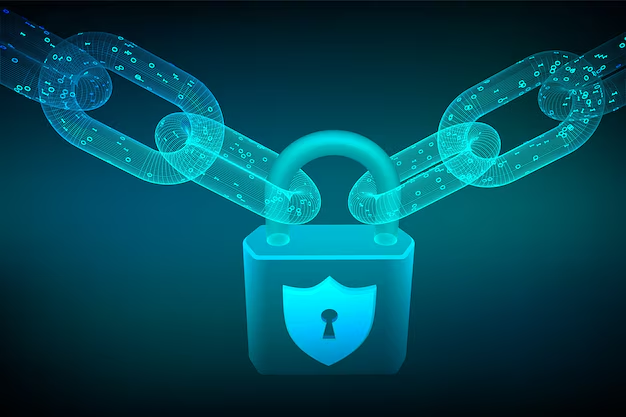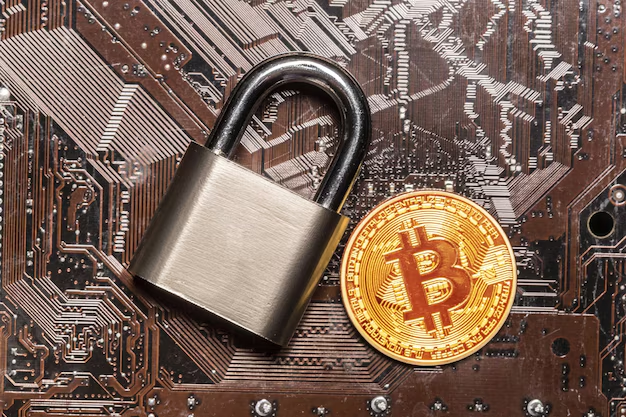In the age of digital transformation, the rise of cryptocurrencies and blockchain technology has sparked a wave of innovation across multiple industries. As blockchain-based assets, including Bitcoin, Ethereum, and other cryptocurrencies, become increasingly popular, the need for secure and efficient digital asset management becomes paramount. A blockchain wallet is essential for users who wish to store, manage, and transfer their digital assets securely. But what exactly is a blockchain wallet? How do these wallets work, and what types exist?
This article aims to provide a comprehensive guide to understanding blockchain wallets. We will explore what blockchain wallets are, how they function, the different types of wallets available, and the crucial role they play in ensuring the safety of digital assets. Additionally, we will delve into security measures and provide guidance on choosing the right wallet for your needs.
Key Takeaways
- Blockchain wallets are essential for securely storing, managing, and transferring digital assets.
- There are two main types of wallets: hot wallets (online) and cold wallets (offline).
- Security is critical, and users should prioritize protecting private keys, using two-factor authentication, and backing up their wallets.
- The choice of wallet depends on the frequency of transactions, security needs, and user preferences.
- Blockchain wallets enable users to interact with the blockchain, making them central to the decentralized ecosystem.
Understanding blockchain wallets and taking the necessary steps to secure them will ensure that you can confidently manage your digital assets in the ever-evolving world of blockchain.
What is a Blockchain Wallet?

A blockchain wallet is a digital tool that allows users to store, manage, and transfer their cryptocurrencies or other blockchain-based assets. These wallets are an essential part of the blockchain ecosystem, acting as the interface between users and the blockchain network. Blockchain wallets store private keys that are used to sign transactions and provide access to digital assets.
The wallet does not actually store the cryptocurrencies themselves, but instead stores the private keys that allow users to access and manage their digital currency on the blockchain. Cryptocurrencies like Bitcoin or Ethereum are stored on the blockchain, and the wallet simply allows the user to interact with the network by signing transactions and verifying ownership.
There are two primary components of a blockchain wallet:
- Public Key: This is like an account number or address on the blockchain. It is used to receive digital assets.
- Private Key: The private key acts as a password that provides access to the funds in the wallet. It is extremely important to keep the private key secure and private.
How Do Blockchain Wallets Work?
Blockchain wallets function by using cryptographic keys to enable secure access to digital assets on the blockchain. Here’s an overview of the process:
- Creation of Public and Private Keys: When a user creates a blockchain wallet, the system generates a public key and a corresponding private key. The public key can be shared with others to receive funds, while the private key should be kept secure, as it is the only way to access and send the funds in the wallet.
- Storing the Private Key: The private key is stored in the wallet and is used to sign transactions, proving ownership of the assets. Since blockchain transactions are irreversible, it is essential to keep this private key safe.
- Making Transactions: When a user wants to send cryptocurrency to another party, they use their private key to sign the transaction. This creates a unique digital signature that confirms the transaction’s authenticity. Once the transaction is signed, it is broadcasted to the blockchain network and added to the public ledger.
- Accessing Blockchain Assets: Blockchain wallets act as an interface to view and interact with the blockchain. Users can check their balance, send or receive digital assets, and monitor transaction history directly through the wallet.
Types of Blockchain Wallets
Blockchain wallets come in various forms, each with unique features and security characteristics. The two main categories of blockchain wallets are Hot Wallets and Cold Wallets.
Hot Wallets
Hot wallets are digital wallets connected to the internet, providing convenient and fast access to cryptocurrencies. While they are user-friendly and accessible, they are also more vulnerable to hacking since they are constantly online.
Examples of Hot Wallets:
- Mobile Wallets: These are wallets that can be installed on smartphones, allowing users to access their digital assets on the go.
- Desktop Wallets: Desktop wallets are installed on personal computers and can be used to manage cryptocurrencies via a computer interface.
- Web Wallets: These are cloud-based wallets accessible through a web browser. They are ideal for users who need quick access from multiple devices.
Pros of Hot Wallets:
- Convenient and easy to use.
- Fast transactions and instant access.
- Ideal for small amounts of digital assets or for day-to-day transactions.
Cons of Hot Wallets:
- Vulnerable to hacking and malware.
- Relatively less secure than cold wallets, particularly for storing large amounts of cryptocurrency.
Cold Wallets
Cold wallets are offline wallets that store cryptocurrency keys in a secure environment. These wallets are not connected to the internet, making them much more resistant to hacking attempts. They are ideal for storing large amounts of digital assets long-term.
Examples of Cold Wallets:
- Hardware Wallets: These are physical devices, such as USB sticks, that store private keys offline. Popular examples include Ledger Nano S, Trezor, and KeepKey.
- Paper Wallets: A paper wallet is a printed document containing private keys and public addresses. Paper wallets are often used for long-term storage and require careful physical security.
Pros of Cold Wallets:
- Extremely secure as they are not connected to the internet.
- Ideal for long-term storage and large amounts of cryptocurrency.
- Less vulnerable to cyberattacks and malware.
Cons of Cold Wallets:
- Less convenient for frequent transactions.
- If lost or damaged, access to funds may be permanently lost (particularly with paper wallets).
Security of Blockchain Wallets

Security is one of the most important aspects of blockchain wallets. Since blockchain transactions are irreversible and the private key is the only way to access assets, ensuring that your wallet is secure is critical. Here are a few key security considerations:
Private Key Security
The private key is the foundation of your wallet’s security. If someone gains access to your private key, they can steal your assets. To prevent this:
- Never share your private key with anyone.
- Store your private key in a secure place (preferably offline).
- Use strong encryption methods to protect your key.
Two-Factor Authentication (2FA)
Two-factor authentication (2FA) provides an additional layer of security for your wallet. By requiring a second factor (such as a code sent to your phone), 2FA prevents unauthorized access even if someone has your password.
Backup and Recovery
It’s essential to have a backup of your wallet’s private key or seed phrase. If your wallet is lost, stolen, or damaged, a backup allows you to restore your wallet and recover your assets. Many wallets provide a recovery phrase during setup that can be written down and securely stored.
Malware Protection
Since hot wallets are connected to the internet, they can be susceptible to malware and phishing attacks. Always use updated antivirus software, avoid suspicious links, and be cautious when accessing wallet applications online.
Choosing the Right Blockchain Wallet
Choosing the right blockchain wallet depends on several factors, including the amount of cryptocurrency you wish to store, how often you need to access your wallet, and the level of security you require. Here are some factors to consider:
Frequency of Transactions
- For frequent transactions or small amounts, a hot wallet (like a mobile wallet or web wallet) may be more suitable due to its ease of access.
- For long-term storage of significant amounts of cryptocurrency, a cold wallet (like a hardware wallet) is recommended.
Security Needs
- If security is a top priority, opt for a cold wallet or a hardware wallet with a backup mechanism.
- For less sensitive assets, a hot wallet may be sufficient.
User Experience
- Look for wallets that are user-friendly and compatible with your preferred operating system (Android, iOS, Windows, etc.).
- Consider wallets that support multiple cryptocurrencies if you plan to hold various assets.
Also Read : Blockchain Scalability: Overcoming The Challenges Of Growth And Efficiency
Conclusion
Blockchain wallets play a pivotal role in the management of digital assets, providing users with a secure and accessible way to store and transfer cryptocurrencies. Whether you choose a hot wallet for ease of use or a cold wallet for security, understanding the different types of wallets and their features is crucial for safeguarding your assets.
Security remains the most important aspect of blockchain wallets, and users must be diligent in protecting their private keys and ensuring that their wallet is properly backed up. By following best practices for wallet management and choosing the right wallet for your needs, you can enjoy the full benefits of blockchain technology without compromising the safety of your assets.
FAQs
What is a blockchain wallet?
A blockchain wallet is a digital wallet used to store, send, and receive cryptocurrencies or other digital assets on a blockchain network. It stores the private keys required to access and manage assets.
What’s the difference between hot and cold wallets?
Hot wallets are online wallets that provide quick access to digital assets, while cold wallets are offline storage solutions that offer higher security for long-term storage.
Is a blockchain wallet secure?
A blockchain wallet is secure as long as you take proper precautions, such as keeping your private key safe, using two-factor authentication, and storing backups.
Can I lose my cryptocurrency if I lose my wallet?
If you lose your wallet and do not have a backup of your private key or recovery phrase, you may lose access to your cryptocurrency permanently.
How do I back up my blockchain wallet?
Back up your wallet’s private key or recovery phrase and store it in a secure location, such as an offline password manager or encrypted storage.
What is a seed phrase?
A seed phrase is a list of words generated by your wallet that acts as a backup for restoring your wallet in case you lose access to it.
Can I use a blockchain wallet for multiple cryptocurrencies?
Many blockchain wallets support multiple cryptocurrencies, so you can store various assets in a single wallet. Make sure to choose a wallet that supports the cryptocurrencies you plan to use.




